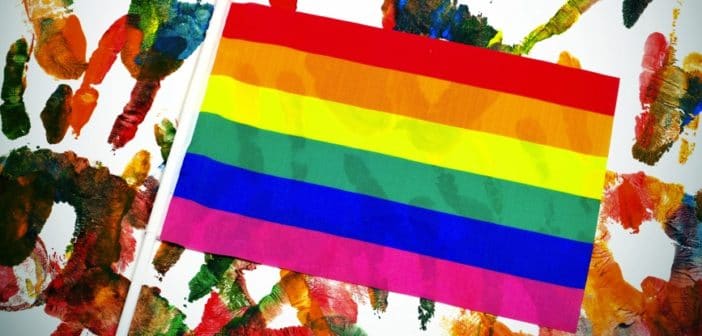 For people in the LGBT community, being out and proud is more accepted in society than it’s ever been. What’s sadly ironic, however, is that the same shame and fear that kept those individuals in the closet still applies to addiction. Struggles with substance abuse don’t magically go away by coming out and, according to some stats, those in the LGBT community find it even more difficult to get solid, long-term substance abuse treatment. A recent Huffington Post article observed that lesbian, gay, bisexual and transgender individuals face “rejection, isolation and low self-esteem—as well as the threats of physical violence, prejudice and discrimination, [which]make them vulnerable to addiction.” It’s those factors that can drive members of the LGBT community deeper into active addiction and away from the care they need. It’s precisely this dilemma that makes a strong case for why specialized LGBT addiction treatment is necessary. In fact, these types of treatment centers might be as vital as they are long overdue.
For people in the LGBT community, being out and proud is more accepted in society than it’s ever been. What’s sadly ironic, however, is that the same shame and fear that kept those individuals in the closet still applies to addiction. Struggles with substance abuse don’t magically go away by coming out and, according to some stats, those in the LGBT community find it even more difficult to get solid, long-term substance abuse treatment. A recent Huffington Post article observed that lesbian, gay, bisexual and transgender individuals face “rejection, isolation and low self-esteem—as well as the threats of physical violence, prejudice and discrimination, [which]make them vulnerable to addiction.” It’s those factors that can drive members of the LGBT community deeper into active addiction and away from the care they need. It’s precisely this dilemma that makes a strong case for why specialized LGBT addiction treatment is necessary. In fact, these types of treatment centers might be as vital as they are long overdue.
Struggling To Get By
Substance abuse struggles are terrible, but they’re far greater when you consider how they affect members of the LGBT community. An issue brief released by the Center for American Progress revealed nearly 30 percent of gay and transgender people in the US abuse alcohol or drugs. By contrast, only 9 percent of the general population abuses the same substances. “The stress that comes from daily battles with discrimination and stigma is a principle driver of these higher rates of substance use, as gay and transgender people turn to tobacco, alcohol, and other substances as a way to cope with these challenges,” the policy institute said. “And a lack of culturally competent health care services also fuels high substance-use rates among gay and transgender people.”
An Advocate piece echoed that LGBT patients are simply wired differently when it comes to addiction: “Compared to heterosexuals, LGBT patients have higher rates of substance abuse, lower levels of abstinence from alcohol and drug use, and a greater likelihood to continue heavy drinking for a longer period of time.” Given all of the generic treatment approaches out there, it’s enough to make you wonder if any LGBT recovery success story is a miracle unto itself.
Triggers and Trends
An NBC News feature on substance abuse in the LGBT community examined common triggers, trends and factors. The article concluded that “as discrimination increases, so do the rates of substance use. But in the absence of real or perceived discrimination, the rates of substance use among LGBT people approximates to rates of the general population.” In other words, a gay man who grows up in a loving, accepting environment would have the same chances of experimenting with drugs as anyone else out there. “Although not well-studied, an opposite phenomenon frequently occurs when an LGBT person moves from a rural area to an urban centers with an active party culture, which is commonly saturated with excessive drug use. This can be a socially-driven pathway to addiction,” the feature says. It’s even more heartbreaking to consider that “perceived discrimination” is a factor, which just underscores the countless inner battles that block an LGBT addict from treatment.
Addiction trends are completely different in the LGBT community, too, according to the Huffington Post article. “Gay and bisexual men have a higher propensity to abuse methamphetamines than heterosexual men, while lesbians and bisexual women are more likely to engage in hazardous drinking than heterosexual women,” the article said. It also cited data from a study that found LGBT patients were 14% more likely to struggle with mental health issues. Not all is lost, though. There’s some encouraging data showing that some LGBT individuals are more likely than heterosexuals to seek treatment. More specifically, “sexual minority women were more likely than heterosexual women to have received treatment in the past year for alcohol related problems.” Unfortunately, treatment-seeking LGBT individuals are routinely failed by what’s available to them.
Tailoring Treatment
Many treatment programs, by design, have one-size-fits-all approaches that don’t take a lot of needs into consideration. Personally speaking, my time in treatment was remarkably blind to my color, sex and orientation. Treatment didn’t care who I was and, quite frankly, I didn’t need it to. I just needed to be told where to go and what to do. Of course, that’s not true for everyone. For all the ways that addiction doesn’t care who you are, addiction treatment itself needs to consider those very things. LGBT individuals face a thornier set of challenges when it comes to treatment, too, and “often end up at treatment centers that fail to address their needs and lifestyle,” the Huffington Post said. This might even be the root cause of why the relationship between addiction treatment and the LGBT community is so complicated. It’s also a key factor in whether someone succeeds in recovery or they don’t.
Many experts contend that the solution rests in offering recovery programs that put the person first. “If a treatment center is not conversant with the individual needs of LGBT patients, it should direct these men and women to a place that can help them. Applying generic approaches to addiction and ignoring specific treatment goals for this population may contribute to a higher incidence of failure,” the Advocate article said. Additionally, treatment programs need to respect the relationship between the addict and their drug of choice as much as the addict and their fellow patients. “Safety in a treatment environment is essential, so that person may speak without fear of judgment and get the care necessary for long-term recovery.”
The 2014 Hazelden study noted that there simply aren’t enough programs out there for treatment-seeking LGBT patients. “Studies have found that a significant number of counselors in substance abuse treatment programs endorse negative attitudes toward LGBT clients, while others simply fail to consider the unique needs of this population.” When a treatment center doesn’t cater to the lifestyles and needs of its clientele, it all but guarantees another relapse. For all the arguments for specialized treatment, it’s hard to say what it actually looks like. The study considers LGBT-specific treatment “must-haves” to be a separate unit or facility, a safe environment that includes LGBT staff and “specialized treatment modalities for different substances.” In the end, addiction doesn’t care who you are. But, while our struggles are all the same, the path to recovery certainly isn’t.
Sponsored DISCLAIMER: This is a paid advertisement for California Behavioral Health, LLC, a CA licensed substance abuse treatment provider and not a service provided by The Fix. Calls to this number are answered by CBH, free and without obligation to the consumer. No one who answers the call receives a fee based upon the consumer’s choice to enter treatment. For additional info on other treatment providers and options visit www.samhsa.gov.




